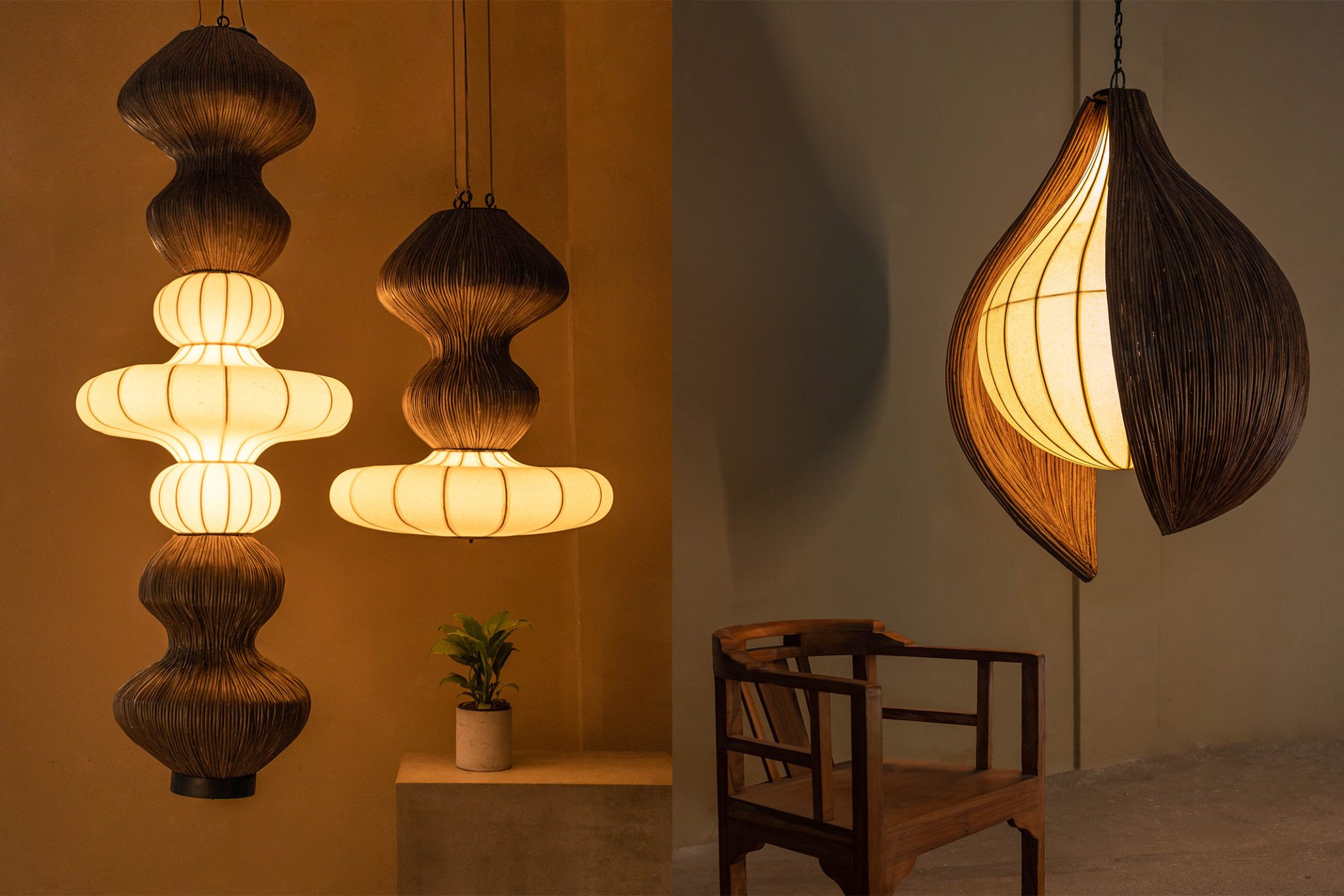Bringing Versatility To The Contemporary Art Scene, Indian Brand Orikrit Transforms Origami
- 4 Dec '23
- 12:40 pm by Tanvee Abhyankar
Origami, the ancient Japanese art of paper folding, has long captivated the hearts of enthusiasts worldwide. Its intricate folds and delicate forms have an innate charm that transcends cultural boundaries. In the world of contemporary art, the Indian brand Orikrit emerges as a trailblazer, redefining origami through their innovative installations that seamlessly blend craftsmanship, engineering, and an unwavering passion for creative expression.
Founded by Deepti and Ayush Jain, graduates of the National Institute of Design (NID) Ahmedabad, Orikrit stands as a testament to their profound dedication to handcrafting beauty. For the past decade, the duo has embarked on an artistic journey to explore the limitless possibilities that origami presents—The journey shaped the inception of Orikrit only in 2022. Their creations encapsulate the essence of origami’s transformational magic—how simple flat surfaces, through thoughtful folds and meticulous engineering, evolve into breathtaking 3D sculptures that possess a mesmerizing kinetic quality.

planning that successfully reflects in their creations. Image Credit: Orikrit
and tactility. Image Credit: Orikrit
The installations made by the team radiate a sense of wonder and curiosity, beckoning viewers to engage with their art on multiple levels. The convergence of traditional craftsmanship and modern technology results in installations that interact dynamically with their surroundings, enhancing the atmosphere and sparking a unique energy and conversational exchange.
Also Read: Decoding The ‘Anadol Effect’: In Conversation With Refik Anadol – Design Pataki
What sets Orikrit apart is their unwavering dedication to folding as an art form and its integration into everyday life. Traditionally origami is associated with the use of paper and being ephemeral as a result, they are usually protected and of a certain hand-held scale. But unlike the traditional origami techniques, which often adhere to set patterns and established folds, the team here thrives on pushing boundaries. They view each fold as an opportunity for exploration, a chance to create new forms that resonate with contemporary audiences while preserving the essence of origami’s meditative spirit. The incorporation of a combination of unique textiles, woven bamboo, and textured metals brings forth a contemporary Indian version of Origami.

deep-seated passions, and the synergy of talents. Image Credit: Orikrit
Origami’s universal appeal is rooted in its simplicity and its connection to the basic human impulse to fold and manipulate materials. Orikrit recognizes this intrinsic familiarity and extends its artistry to a global audience of craft enthusiasts, transcending cultural confines. With this approach, the challenge of relating to a specific audience becomes secondary to the overarching goal of connecting with individuals who appreciate the art of folding in all its intricacies.
The founders emphasize that the true magic unfolds even before the physical installation process begins. Extensive trial, research, and introspection underpin the journey from concept to reality. Every fold has its character, its behavioral pattern, which unveils itself as the process unfolds. The creators embrace this unfolding journey, letting the folds guide them to uncharted territories of design.

suiting the space surrounding it. Image Credit: Orikrit
While technology plays a supporting role in the process, it cannot replicate the visceral impact of the tangible. The digital realm may offer simulations, but it is the physical presence of the installations that truly engages the senses. This philosophy is embodied in Orikrit’s commitment to creating an all-encompassing experience for the recipient, where every element from the packaging to the final product, radiates delight and significance.

In the world of origami, where mathematicians and scientists often delve into the art for its practical applications, Orikrit shines as a beacon of artistic expression. Their ability to transform complex folds into accessible forms is a testament to their dedication and their belief in origami’s potential as a conduit for creativity and connection. These creations are versatile, able to blend in seamlessly or stand out in various contexts, including Mediterranean, eclectic, Japanese, bohemian, industrial, or contemporary styles.
Also Read: Celebrating Indian Craftsmanship – Ayush Kasliwal at Ambiente, Frankfurt, 2019 – Design Pataki
From intricate meditative installations that invite introspection to meticulously crafted kinetic sculptures that dance with the environment, Orikrit’s work encapsulates the magic of origami. Their journey is one of passion, love, and craftsmanship, where each fold carries the weight of creativity and human ingenuity. Through their devotion to innovation, their installations breathe life into the ancient art form, offering a new perspective on the boundless possibilities that can emerge from the simple act of folding paper.

and tactility. Image Credit: Orikrit
As they continue to explore the synergies between origami and the Indian context, Orikrit remains an inspiring force in the art world—an embodiment of the timeless interplay between tradition and innovation, passion and practice.

























